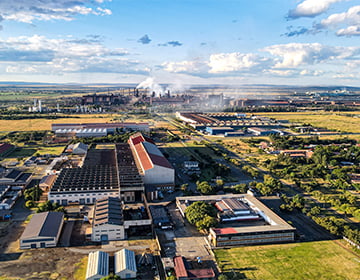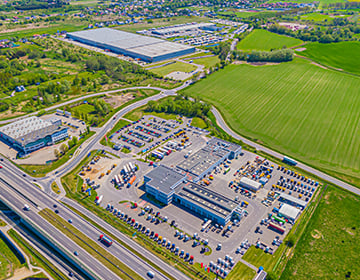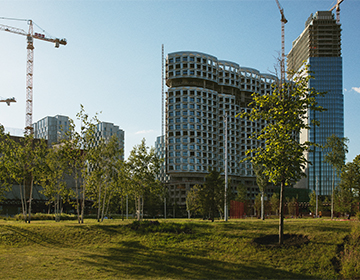- Home
- Blog
- Buying Guide
- Opportunities and Strategies in Industrial Real Estate Investing
Opportunities and Strategies in Industrial Real Estate Investing
Recently, industrial real estate investing has become a crucial part of the economy, even though many people may not fully realize its importance. But what is industrial property exactly? What are industrial properties and their role in the market? Industrial properties form the backbone of logistics and supply chains, even if they are less visible than retail stores or homes. Many people also wonder if you can live in an industrial zoned property? Generally, the answer is no, as these spaces are designed primarily for commercial and industrial use rather than residential living.
By understanding the types of industrial real estate investors can discover many opportunities suited to their financial goals. Whether you are investing in industrial property or actively considering how to invest in industrial real estate, this sector offers valuable potential to grow and diversify your portfolio.
Industrial Real Estate Options for Investors
Knowing what are the different types of industrial property is key when deciding how to invest in industrial real estate. Industrial assets range from heavy manufacturing plants to light industrial facilities and warehouses. If you’re wondering how to find industrial property for sale, working with reputable industrial real estate investment companies can guide you smoothly through the process.
Heavy Industrial Facilities: Large-scale manufacturing sites requiring robust infrastructure and strict environmental compliance. For example, heavy industrial plants located in Istanbul’s industrial zones may suit long-term leasing but must consider environmental regulations and infrastructure investments.
Light Industrial and Assembly Facilities: Flexible spaces combining warehousing and production, adaptable to various industries. These often offer flexible leasing options that maintain investment liquidity even if tenants change.
Cold Storage Warehouses: Increasingly important due to demand from fresh food and pharmaceutical sectors. Globally, companies like Amazon are expanding cold storage investments, and in Turkey, cities such as Istanbul and Izmir are experiencing rapid growth in these facilities. The rise of e-commerce makes cold storage warehouses an attractive investment.
Flex Spaces: Multi-use industrial spaces suitable for small to medium-sized businesses, combining office and warehouse functions. Their adaptability to changing business needs has driven recent popularity.
Each property type carries distinct risk and return profiles, so considering your portfolio diversity and risk tolerance is essential before making investment decisions.
Core, Core-Plus, and Value-Add Investment Strategies
Your choice of industrial real estate investment strategy will depend on your goals and risk appetite. The three main strategies differ in risk-return balance and management intensity:
Core Investments: Low-risk properties with stable, long-term rental income. These include high-quality buildings leased to major companies, such as Amazon logistics centers or large retail warehouses. Returns tend to be modest but reliable.
Core-Plus Investments: Similar to Core but with added potential for value enhancement through renovations or upgrades, allowing investors more control and optimized returns.
Value-Add Investments: Higher-risk, higher-reward projects involving significant improvements or development on existing properties or vacant industrial land. These require active management but offer substantial value growth when executed well.
Selecting the appropriate industrial real estate investment strategy depends on your individual objectives and risk tolerance.
The Impact of E-Commerce on Industrial Real Estate
The global growth of e-commerce has transformed the industrial property market. With over 30% of online orders delivered within a day or two, last-mile delivery logistics have become critical. As a result, demand for small to medium-sized warehouses in urban areas is rapidly increasing.
Research projects e-commerce will account for 24% of global retail sales by 2025. This trend elevates the value of logistics and warehouse spaces, accelerated further by the pandemic-driven shift toward digital shopping habits.
In Turkey, cities like Istanbul, Izmir, and Bursa are witnessing new warehouse investments by e-commerce companies strategically located for efficient last-mile delivery. These developments enhance the benefits of investing in industrial real estate and create fresh opportunities.
Advantages and Risks of Industrial Real Estate Investment
Benefits of industrial real estate investment include:
Providing stable, long-term rental income.
Supporting portfolio diversification.
Benefiting from rising demand fueled by e-commerce growth.
Offering risk-return balance through various investment strategies.
However, as with any investment, risks exist:
Single Tenant Risk: Properties leased to one tenant face income risk if the tenant defaults or terminates the lease. Multi-tenant properties can mitigate this risk.
Environmental and Infrastructure Risks: Heavy industrial sites may face regulatory challenges or infrastructure deficiencies affecting value.
Location Risk: Investments in underdeveloped areas may have limited appreciation potential, making site selection crucial.
By conducting thorough market analysis and consulting professionals, investors can manage these risks effectively.
Is Industrial Property a Good Investment?
If you’re asking is industrial property a good investment data shows it often outperforms other commercial property types in terms of returns and resilience. There are many reasons to invest in industrial real estate, including low vacancy rates, increasing rental rates, and the sector’s inflation-hedging qualities.
Best Time to Invest in Industrial Real Estate
Wondering what is the best time to invest in industrial real estate? Market cycles, technological advances, and e-commerce trends all influence timing. Currently, the convergence of digitalization and logistics growth suggests this is an opportune moment to enter the market.
Industrial Real Estate Investing: The Key to Success
Digitalization, evolving consumer behaviors, and expanding global logistics networks make industrial real estate more attractive than ever. Employing the right strategies and partnering with reputable industrial real estate investment companies can help build a strong portfolio and generate long-term, high returns.
Success in this field results from careful preparation and timing. Informed decisions based on solid research on how to invest in industrial real estate will position you among future market leaders. If you want to learn effective strategies for industrial property investment, comprehensive guides on commercial real estate investment provide valuable insights.
Now is the perfect time to invest in industrial real estate — don’t miss the opportunity.









